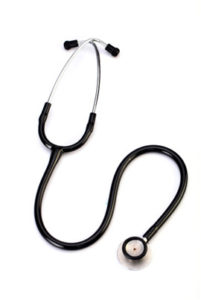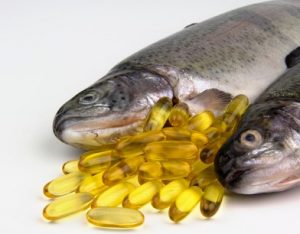Should You Avoid Supplement Use During Chemotherapy?
 Since much of my research career was devoted to cancer research, specifically developing new chemotherapeutic drugs for treating cancer, many of you have asked me the question: “Do food supplements interfere with chemotherapy?”
Since much of my research career was devoted to cancer research, specifically developing new chemotherapeutic drugs for treating cancer, many of you have asked me the question: “Do food supplements interfere with chemotherapy?”
My answer has always been that it is theoretically possible, but that we don’t really know the answer because the necessary studies have not been done.
However, I do know that most cancer drugs are retained in the body for a short period of time. So, my pragmatic advice has always been to avoid supplementation for a day or two before to a day or two after each round of chemotherapy. That is a strategy designed to minimize the possibility that supplementation would interfere with chemotherapy and maximize the possibility that supplementation might aid in recovery between rounds of chemotherapy.
That is why I was interested when I saw the recent headlines claiming certain supplements may interfere with chemotherapy for breast cancer. I wanted to find out if someone had finally done a definitive study on the effect of supplementation on chemotherapy.
So, I have reviewed the study (CB Ambrosone et al, Journal of Clinical Oncology, 38, 804-815, 2020) behind the headlines and will share what I discovered.
How Was The Study Done?
 This study was an offshoot of a much larger Phase III clinical trial designed to determine the best schedule for administering three drugs (doxorubicin, cyclophosphamide, and paclitaxel) to patients with high-risk early-stage breast cancer.
This study was an offshoot of a much larger Phase III clinical trial designed to determine the best schedule for administering three drugs (doxorubicin, cyclophosphamide, and paclitaxel) to patients with high-risk early-stage breast cancer.
The 1,134 patients enrolled in this study were given questionnaires on their use of supplements when they registered for the study to determine supplement use prior to the study. They were also given questionnaires when they completed chemotherapy to determine supplement use during chemotherapy.
The questionnaires documented use of:
- Multivitamins
- The antioxidants vitamin C, vitamin A, vitamin E, carotenoids, and coenzyme Q10.
- Vitamin D.
- The B vitamins vitamin B6, vitamin B12, and folic acid.
- The minerals iron and calcium.
- Omega-3 fatty acids.
- Glucosamine, melatonin, and acidophilus.
Recurrence of the breast cancer and death from breast cancer were measured 6 months after chemotherapy ended.
Do Supplements Interfere With Chemotherapy?
- The number of patients using individual antioxidant supplements was too low to determine whether individual antioxidants had any effect on treatment outcomes.
- When the patients using any antioxidant supplement were pooled into a single group, there was a nonsignificant association between antioxidant supplement use during chemotherapy and an increased risk of breast cancer recurrence and death from breast cancer.
- Iron use during chemotherapy was significant associated with an increased risk of breast cancer recurrence.
- Vitamin B12 use during chemotherapy was significantly associated with increased risk of breast cancer recurrence and death from breast cancer.
- Multivitamin use was not associated with either recurrence or death from breast cancer.
- The number of patients using the other supplements was too low to determine whether those supplements had any effect on treatment outcomes.
The authors concluded: “Associations between survival outcomes and use of antioxidant and other dietary supplements are consistent with recommendations for caution among patients when considering the use of supplements, other than a multivitamin, during chemotherapy.”
This is the conclusion that generated the headlines you may have seen.
However, in their discussion the authors conceded that a previous review concluded that, “…insufficient evidence existed with regard to the safety of dietary supplements [during chemotherapy] to make recommendations, and that still may be the case.”
I will discuss the reasons for their disclaimer below. However, I will point out that disclaimers like this never seem to make it into the headlines you read.
What Are The Strengths And Weaknesses Of This Study?
 The only strength of this study is that it was performed in the context of an ongoing clinical trial, with surveys conducted before chemotherapy and during chemotherapy to assess supplement use.
The only strength of this study is that it was performed in the context of an ongoing clinical trial, with surveys conducted before chemotherapy and during chemotherapy to assess supplement use.
However, the study had multiple weaknesses that limit the ability to draw any firm conclusions from the study.
#1: The number of people using supplements in this study was very small. For example:
- Only 200 people took any antioxidants during chemotherapy.
- Only 137 people took a vitamin B12 supplement during chemotherapy.
- Only 109 people took an iron supplement during chemotherapy.
To put this into perspective, if a drug company were submitting a new drug for approval to the FDA, they would be required to submit data from ~50-100-fold more cancer patients to prove that the drug was effective.
With this small number of supplement users, even “statistically significant” observations are questionable.
In contrast, the number of people taking a multivitamin during chemotherapy was 497. Thus, those data were a little stronger than the data for individual supplements.
#2: They did not ask why people were taking supplements. It turns out that the patients who used supplements were older and sicker. They were more likely to be overweight and to have type 2 diabetes.
These are patients who are also more likely to have poor outcomes from chemotherapy. The authors tried to correct for that, but it is virtually impossible to make these corrections when the number of patients taking supplements is so low.
#3: They did not ask about the dose of supplements people were taking.
- Multivitamins typically contain RDA levels of antioxidants and vitamin B12, so it would be safe to assume that RDA levels of antioxidants and vitamin B12 are safe during chemotherapy.
- Approximately 50% of the women in the study were premenopausal, so it is likely that they were taking a multivitamin with iron. That suggests that RDA levels of iron are safe during chemotherapy for premenopausal women.
In short, the association between supplement use and poorer outcomes from chemotherapy is tenuous. If there is any association, it is likely with high dose individual supplements rather the lower levels of the same nutrients found in a multivitamin.
Is An Effect Of Supplement Use On Chemotherapy Plausible?
As a biochemist, the next question I ask is whether there is a plausible mechanism for an effect of any of these  supplements on chemotherapy outcomes.
supplements on chemotherapy outcomes.
- For two of the drugs in the regimen (paclitaxel and cyclophosphamide), free radical formation may contribute to their effectiveness, but it is not their main mechanism of action. Thus, it is plausible that high dose antioxidant supplements could make these drugs less effective, but the effect should be relatively small.
- Tumors require high amounts of iron for proliferation, so it is plausible that excess iron could make tumors more resistant to chemotherapy. However, for premenopausal women, multivitamins with iron did not interfere with the drugs used in this study. Thus, it appears likely that RDA levels of iron, where appropriate, do not interfere with chemotherapy.
- The authors said that the reason for the observed effects of vitamin B12 on chemotherapy in their study “remains to be understood”. However, the answer might be found in the dosage of vitamin B12. A previous study reported that doses of vitamin B12 that were greater than 20 times the RDA increased the risk of lung cancer.
If people in this study were taking doses of vitamin B12 in excess of 20 times the RDA, it would provide a plausible explanation for B12 interfering with chemotherapy. If not, there is no known explanation. In any case, I do not recommend taking such high doses of any supplement.
Should You Avoid Supplement Use During Chemotherapy?
 Now, let’s get back to the original question: “Should you avoid supplement use during chemotherapy?” If you read the headlines saying, “Supplement Use During Chemotherapy May Be Risky”, you might think that the answer is an unqualified yes. That is also what your doctor is likely to think.
Now, let’s get back to the original question: “Should you avoid supplement use during chemotherapy?” If you read the headlines saying, “Supplement Use During Chemotherapy May Be Risky”, you might think that the answer is an unqualified yes. That is also what your doctor is likely to think.
However, when you analyze the study behind the headlines you realize that the evidence supporting the headlines is very weak.
So, that puts us back to where we were before the study was published. Simply put:
- It is theoretically possible that supplements interfere with chemotherapy, but we don’t know for sure.
- A pragmatic approach is to avoid supplementation for a day or two before to a day or two after each round of chemotherapy. This is a strategy designed to minimize the possibility that supplementation would interfere with chemotherapy and maximize the possibility that supplementation might aid in recovery between rounds of chemotherapy.
Note: This is generic advice. I am not a medical doctor, so it would be unethical for me to provide individualized advice on how to minimize interactions between supplements and chemotherapy. What I recommend is that you ask your doctor whether my generic recommendations make sense for your cancer and your drug regimen.
If this study advanced our knowledge at all, it would be that:
- The supplements most likely to interfere with chemotherapy appear to be high dose antioxidants, vitamin B12, and iron supplements.
- Multivitamins, even multivitamins with iron when appropriate, are unlikely to interfere with chemotherapy.
The Bottom Line
Recent headlines have warned, “Supplement Use During Chemotherapy May Be Risky”. Is that true?
However, when you analyze the study behind the headlines you realize that the evidence supporting the headlines is very weak.
So, that puts us back to where we were before the study was published. Simply put:
- It is theoretically possible that supplements interfere with chemotherapy, but we don’t know for sure.
- A pragmatic approach is to avoid supplementation for a day or two before to a day or two after each round of chemotherapy. This is a strategy designed to minimize the possibility that supplementation would interfere with chemotherapy and maximize the possibility that supplementation might aid in recovery between rounds of chemotherapy.
Note: This is generic advice. I am not a medical doctor, so it would be unethical for me to provide individualized advice on how to minimize interactions between supplements and the chemotherapy drugs you are on. What I recommend is that you ask your doctor whether my generic recommendations make sense for your cancer and your drug regimen.
If this study advanced our knowledge at all, it would be that:
- The supplements most likely to interfere with chemotherapy appear to be high dose antioxidants, vitamin B12, and iron supplements.
- Multivitamins, even multivitamins with iron when appropriate, are unlikely to interfere with chemotherapy.
For more details read the article above.
These statements have not been evaluated by the Food and Drug Administration. This information is not intended to diagnose, treat, cure or prevent any disease.






